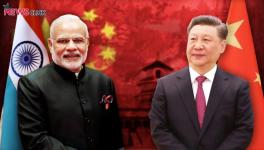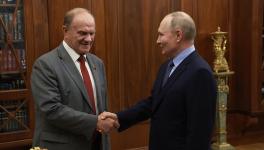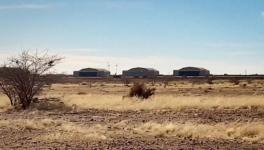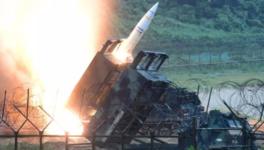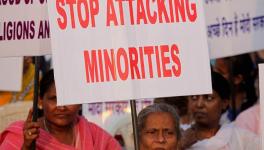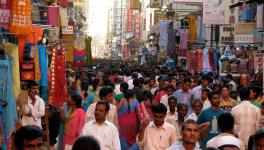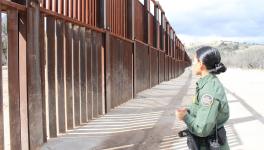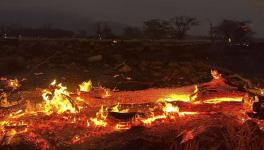Killing Osama will not kill the state of terror
Osama – dead or live was the slogan of successive US Presidents.
He is now dead, shot down by Navy Seals in Abbotabad. The manner of his death has raised a large number of questions – was it legal to shoot somebody down who was not resisting, did the US violate Pakistan's sovereignty or the public position that Pakistan was not informed a manoeuvre to shield Pakistan from possible consequences. Questions have even been asked whether he is really dead. In all this, the larger question of what Osama represented and what difference will it make to the world has taken a back-seat.
The picture of treating an execution in the manner of a football victory and more or less brazenly asserting the US right to execute anybody anywhere is deeply problematic. However, targeted executions of the Osama variety have been with us for quite some time and openly so. Drone attacks in Afghanistan and Pakistan are nothing but targeted executions – not only of specific targets but even their families. That the drone attacks quite often 'take out' large number of civilians who have nothing to do with the 'targets' makes this mode of execution even worse than the kind of operation we saw in Abbotabad.
In this new mode of 'war', one side is a terrorist if it attacks any target using a plane, car or suicide bomber while the other side, sitting in a remote base in Nevada can 'take out' people in Pakistan with a missile as part of a 'legitimate' war on terror. At the moral and legal level, both actions are equally terrorist. One side has far more precision in attacking its chosen targets, even if it knows very little about them while the other side knows the targets, but has poor precision. I am reminded of the moral issues in the Algerian war. While the French bombed the Algerians from the air, the Algerian resistance used basket bombs left near targets to attack the French. On being told that this was a cowardly and terrorist form of attack, the Algerian resistance had responded that they would be quite happy to use aircraft instead if they had them. The 'delivery' system represents merely the level of technology available to the two sides – and not any great moral choice.
What did Osama Bin Laden represent to the world? By the time of his death, he had become a cipher, having significance as a symbol but with little value to the actual course of events on the ground. Staying alive and hidden from public view was his success – not what he was doing. As long as he was not caught, the US had to live with the fact that the master-mind of the 9/11 attacks was still free. As long as he was free, he denied the US a closure on 9/11.
It has been clear for some time that Al Qaeda is not a tightly knit terror network, but a loosely affiliated franchise. Different groups having broadly similar orientation identified themselves with Al Qaeda without being part of an operational organisation. At its height, Al Qaeda was probably about 50-100 people. Osama Bin Laden's strength was that he had brought money to the cause; first the one where he made common cause with the US in its CIA inspired resistance to the Soviet Union in Afghanistan and then against the US. Osama's becoming a larger than life figure stemmed from the spectacular success of the attacks on the twin Trade Towers in at a time that Arab people found themselves helpless. With Arab regimes all falling in line if not becoming US vassals, the Arab people saw themselves as politically powerless. It is in this climate of helplessness that a figure like Osama could flourish, if not physically at least in the Arab imagination. This is what spurred a number of off-shoots, who patterned themselves on Al Qaeda, seeing themselves as a part of the resistance against the US and its allies.
It is this picture that has undergone a sea change, particularly after Tunisia and Egypt. The Arab people now know the power of mass mobilisation and mass action. They have toppled a Ben Ali and a Mubarak, who till other day seemed to be impregnable. Through out the Arab world, people are taking to the streets daily – not only for the big changes but also for the little ones. It is a return to mass politics agai, aborted for the last 40 years. It is back to heady days of Arab nationalism – with Nasser and a host of Nasser like figures in the Arab world taking on the decaying feudal remnants that had allied themselves with the ex-colonial powers.
In this day and age, Osama seems like a figure from the distant past. The Arab world has moved on far beyond the heyday of Osama. Even in his heyday. Osama was a figure confined to one of the poorest and most backward countries in the world – Afghanistan. He came from another medieval country – Saudi Arabia – though an oil-rich one. The special conjuncture of helplessness and the spectacle of the fall of twin towers catapulted him to his iconic status.
If the US had focussed on only Al Qaeda and on Osama, the world would have been quite different. The US however, lead by a neo-con establishment, saw this as an opportunity of remaking the world, decided to attack and occupy Afghanistan and Iraq. Englehardt points out , “That would be the beginning of a brief few years of soaring American hubris and fantasies of domination wilder than those of any caliphate-obsessed Islamic fundamentalist terrorist, and soon enough they would leave us high and dry in our present world of dismal unemployment figures, rotting infrastructure, rising gas prices, troubled treasury, and a people on the edge.” What Osama could never do, the US did successfully – it made attacking the US legitimate in the eyes of the people. It is this blood-letting in Iraq and Afghanistan, the numerous instances of wanton killings, the racial nature of the occupation that has legitimised use of terror against the US. It is the US actions in Afghanistan and Iraq that have converted a minor figure with one major action to a major force changing the world. Osama had to do very little in this. It is the US that has now decided targeted killings are acceptable as long as the US does it, people can be legitimately tortured and kept without trial indefinitely, national borders and sovereignty apply to other countries but not the US, privacy –either electronic or personal no longer exists. All that the US condemns as terror for others is now an accepted part of its own polices.
Welcome also to the new world in which Big Brother can routinely monitor all that its citizens do. Tom Engelhardt captures this brilliantly in this passage “Your government can now come up with any wacky solution to American “security” and you’ll pay the price. One guy brings a failed shoe bomb on an airplane, and you’re suddenly in your socks. Word has it that bombs can be mixed from liquids in airplane bathrooms, and there go your bottled drinks. A youthful idiot flies toward Detroit with an ill-constructed bomb in his underwear, and suddenly they’re taking naked scans of you or threatening to grope your junk.” But this is not all that the US has done post 9/11. It is now in a permanent state of war – a war that by definition cannot end as it has no declared enemies. The war is on a concept called terror – War on Terror. It cannot be won as long as the US declares there exists terror. It is a battle not against any country or group, but can be extended to any country or any group. An Iraq and a Saddam Hussein was a target without having anything to do with Al Qaeda or Osama. In the larger matrix of War on Terror, it did not matter. All that the US had to do was to put a bulls-eye on Iraq and Saddam and automatically they became a part of this newly proclaimed 'Republic of Terror' and therefore worthy of attack.
I still remember that while watching the fall of the twin towers, some of us had commented that with this act, decades of protests against US military actions abroad and resistance by groups at home would come to nought. This single act would remove all restraints on the US, forged with immense hardship and struggle both in the US and outside. That this act would strengthen US imperialism and not weaken it. This is exactly what has happened in the last decade. Today, it is the US that is busy expanding the new Republic of Terror. Every time, it commits atrocities, deposes a Government, unleashes its dogs of war, it strengthens the Republic of Terror. It is the democratic struggles of people in the Arab world and beyond that weakens it. In this larger canvas of the world, it is the US today that is fulfilling Osama's aims and feeding this Republic of Terror. Osama's death has little meaning – it is the US that must change course if terror has to be defeated.
The death of Osama provides an opportunity for Obama to change course. He can declare 'victory' in Afghanistan and pull out his troops. He can scale down the US from the global hegemon to merely an ageing superpower. Will he do it or will he continue to lock himself on to the same course that George Bush the Junior was following remains to be seen. Obama determines today what happens to the Republic of Terror. Osama's death has little significance in this regard.
Photograph Courtesy: Flickr.com
Get the latest reports & analysis with people's perspective on Protests, movements & deep analytical videos, discussions of the current affairs in your Telegram app. Subscribe to NewsClick's Telegram channel & get Real-Time updates on stories, as they get published on our website.









